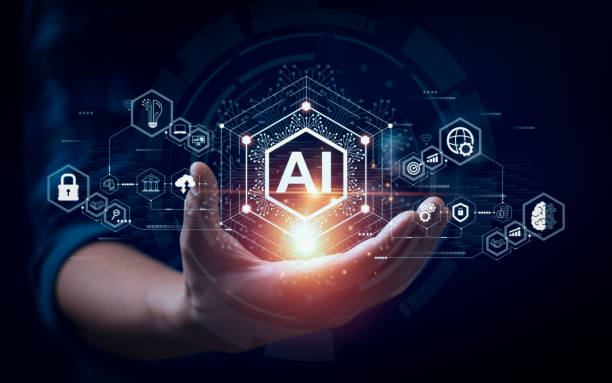Overview
Summary
- Artificial Intelligence (AI) is a frequent topic of conversation and has significant implications for businesses.
- Building resilience is crucial in an era of constant disruption and technological change, including AI.
- Leaders should address common challenges such as lack of vision, poor data governance, and complexity in data management.
- Leaders must shape the culture of their organizations and model adaptability in an uncertain future.
- An organization’s digital operating model is key to aligning execution strategy with digital capabilities for resilience.
- The ability to adjust course quickly is crucial for business success in the face of AI and other transformative technologies.
- Familiar methods like change management practices and agile delivery can make change less daunting.
- Seeking diverse perspectives and embracing discomfort are essential for navigating AI-driven change.
Recommendations
- Foster Resilience: In an era of constant disruption and technological change, it is crucial for organizations to cultivate resilience.
- Leverage Familiar Methods & Practices: Modern methods, practices and frameworks are built to adapt to changing conditions.
- Focus on the Organizational Operating Model: Organizations should develop a digital operating model that aligns execution strategy with digital capabilities.
- Seek Diverse Perspectives, Expertise & Support: Leaders should be humble enough to acknowledge that they don’t have all the answers and should actively seek diverse perspectives and experiences. By leveraging wisdom and experience, leaders can gain valuable insights and make informed decisions about AI adoption and its impact on their organizations
- Embrace Discomfort and Take Action: Recognizing that the pace of change will only get faster, leaders should embrace discomfort and take action rather than adopting a wait-and-see approach to AI
Analysis
“What are your thoughts on AI?” “How is AI going to impact business?” “How is AI going to impact our lives and livelihood?”
I find it fascinating that AI has become a frequent topic of conversation in our daily lives. It’s an exciting and uncertain time for businesses. It’s hard to believe that it has only been just over a year since Artificial Intelligence entered the mainstream with the release of ChatGPT in November 2022.
Personally, I’ve enjoyed engaging in discussions, exploring AI tools, and learning from diverse perspectives. As someone in the technology field, I view these discussions through the lens of my career, and two things come to mind:
- Technology is constantly evolving, and the pace of change has never been faster.
- Leadership has always been important, but it is even more critical now.
"The pace of change has never been this fast, yet it will never be this slow again"
Yale University
So, what should we do in an era of constant disruption and technological change, such as AI?
Foster a new level of resiliency within our organizations.
You might ask, haven’t we already been resilient enough to overcome the challenges of the past few years? Yes, we have shown resilience, and it is precisely this type of resilience that we must continue to cultivate.
Resilience, defined as the capacity to withstand or recover quickly from difficulties, is akin to qualities like nimbleness, agility, and adaptability that leaders often associate with strategy and transformation.

By 2025, “labor volatility” will cause 40% of organizations to report a material business loss, forcing a shift in talent strategy from acquisition to resilience.”
Gartner: Top Predictions for IT Organizations and Users in 2023 and Beyond
Leaders must build new communities, relationships, pathways, and doorways to foster adaptability and resilience. Now, you might be wondering, where does AI fit into all of this? AI is just the latest topic that highlights the urgency of building resilient organizations. It follows in the footsteps of previous transformative technologies like cloud computing and extends all the way back to the industrial revolution.
As a leader, how can you practically lead and build the necessary resilience, especially in relation to AI?

Many organizations have struggled with common ailments such as:
- A lack of a unifying vision and leader to drive a digital transformation (no buy-in)
- A lack of alignment on the technology stack to execute a strategy for a digital operating model (low collaboration)
- Poor data and machine learning model governance (lack of expertise in offensive strategy to go digital)
- No enterprise alignment on applications, data, artificial intelligence, and analytics (a technology Tower of Babel)
- An inability to overcome complexity and scale challenges in data and process management for real-time AI (change management)
Leverage familiar methods to make change less daunting.
We have many practices and methodologies that provide us cues into how we navigate change in organizations:
- Traditional Change Management Practices that rely on communication, learning & leadership.
- Strategic Operating Models such as Scaling Up, EOS and Franklin Covey’s Four Disciplines of Execution all rely on focused efforts over short time frames with the expectation that elements of the strategy will require adjustments 90 days later.
- Delivery practices such as Agile & Product Management focus on prioritizing the smallest amount of work that provides measurable value in the shortest time frame and then continuing to lather, rinse & repeat in contrast to dated “waterfall approaches” that struggle to adapt to changing conditions.
However, I believe that the kind of change required today cannot be found solely in these methods. It lies within leadership and how leaders shape, foster, demonstrate, and adapt the culture of their organizations. Ultimately leaders must equip and model what it means to operate in an uncertain future where answers are not always obvious.
Focus on your organization operating model and orient it towards resiliency!
What is an operating model and how does that tie to resiliency and AI?
“An operating model is the blueprint and execution plan for generating value from an organization’s business models. A digital operating model is the defined approach for aligning execution strategy to deliver customer value by leveraging digital capabilities and technologies for business success. It requires a holistic enterprise approach that aligns the data and AI strategies.” – CIO.com
And why is this important in building resiliency?
Through my experience working with various organizations, I’ve witnessed successes, failures, and adaptations. The successful ones understand that practices and processes like Agile and Product Management, which may seem like technology responsibilities, are actually critical components of a holistic enterprise approach that drives business outcomes. When viewed from this perspective, we see that these practices enable flexibility, adaptation, and continuous feedback, much like resilience.
Leverage wisdom and experience to gain diverse perspectives!
One way is to leverage wisdom and experience to gain diverse perspectives. In the book “From Strength to Strength,” author Arthur Brooks explores how humans transform over the course of their lives. By prioritizing deep wisdom, detachment from empty rewards, and connection and service to others, we can find true success and increased happiness.
The answers may seem simple, but taking action requires courage.
 Still not sure how to do this? Be humble enough to acknowledge that you don’t have all the answers. Be hungry to learn, ask questions, seek diverse perspectives and experiences, and form new viewpoints. Embrace discomfort and show others how to do the same.
Still not sure how to do this? Be humble enough to acknowledge that you don’t have all the answers. Be hungry to learn, ask questions, seek diverse perspectives and experiences, and form new viewpoints. Embrace discomfort and show others how to do the same.
If you subscribe to the notion that the pace of change will only get faster, then taking a wait and see approach to AI is likely a losing strategy.
The bottom line is recognizing that the type of change necessary to operate in a fast-changing world will be uncomfortable. And once you have, then show others how to do this!
At Ascendex, we offer Technology Innovation & Leadership Services, including advisory, interim, and fractional expertise, to help navigate these fast-changing times. The ability to quickly adjust course will be the difference between business failure and success.

